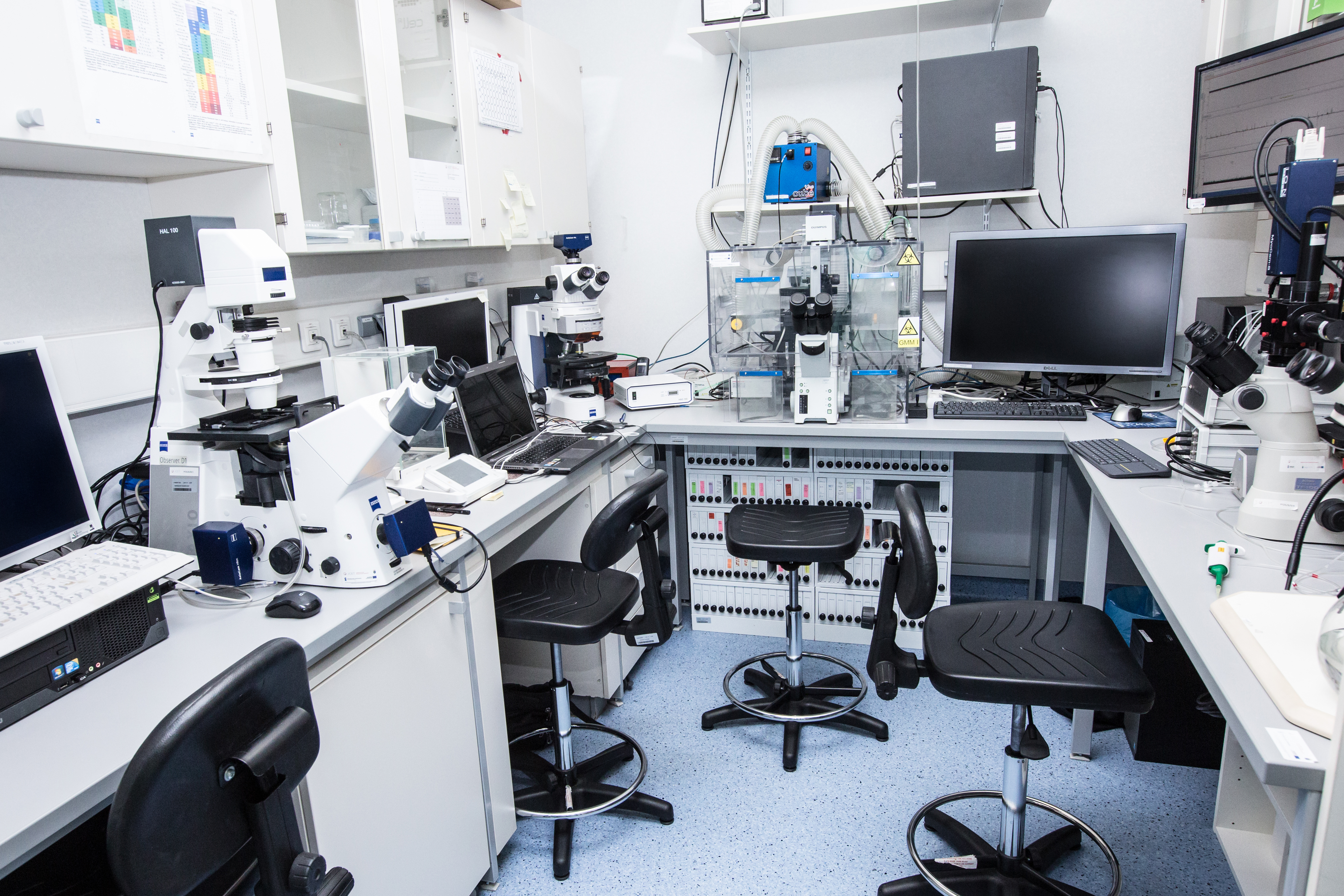Pursuant to § 7 sections 1 and 3 of Resolution No. 5/I/2020 of the Senate of the Jagiellonian University of 29 January 2020 on: the rules of recruitment for the Doctoral School of Exact and Natural Sciences at the Jagiellonian University in the academic year 2020/2021, the Director of the Doctoral School of Exact and Natural Sciences announces a competition for 1 doctoral student/s with a scholarship financed from the research project funds as part of the PhD study programme Biomedical Sciences.
Within the NCN funded project entitle Connecting Artificial Protein Cages, a commission set up at the School will conduct recruitment for the PhD study programme Biomedical Sciences in the academic year 2020/21.
The project manager, dr hab. Jonathan Heddle, prof. UJ offers an opportunity to complete the doctorates in the following area (title): PROGRAMMABLE PROTEIN ENGINEERING
After the interviews and the evaluation of the candidates, the Chairman of the committee presentsa report to the Director containing a list of candidates recommended for admission to the school as part of the research project.
Schedule of the competition:
- Opening of the competition: 19.07.2021
- Application submission deadline: 22.07.2021, 2:00 PM
- Entrance exams: 29-30.07.2021
- Announcement of results: 05.08.2021
- Enrollment: 10.08-10.09.2021
13.09-14.09.2021 (reserve list)
Detailed terms and procedures of admission.
Application documents (required as part of a given PhD study programme and resulting from the specificity of the research project):
- Motivation letter, explaining how the applicant’s background and research interests make them a suitable candidate for the position
- Curriculum vitae (CV) with particular emphasis on scientific achievements;
- A copy of degree certificates (master degree, master of engineer, equivalent);
- Reference letter written for the candidate by a researcher holding at least the academic degree of doktor habilitowany (post-doctoral degree) or being an employee of a foreign higher education institution or research institution who has a substantial track record in scientific issues related to life sciences;
- Names of researchers (two referees including a former supervisor) giving references to the candidate (their contact numbers and academic title)
- Documents demonstrating the scientific achievements listed in the curriculum vitae, e.g. first page of the article
- Transcript of grades: diploma supplement, or the official transcript of grades, or another document listing completed courses and grades. Information about grading scale must be included
- Signed agreement for processing personal data (available here: http://www.heddlelab.org/images/Personal%20data%20NCN.pdf)
- a 35 mm × 45 mm photograph without a headgear on a light background;
- for inspection: identity card (passport in case of foreigners);
In the event of the persons referred to in Article 186, section 2 of the Act,
- two opinions confirming the high quality of their research work and the high level of advancement of such work, issued by: a research fellow holding at least the academic degree of doctor habilitated or being an employee of a foreign higher education institution or a research institution, who has significant achievements in academic issues related to the curriculum or
- a certificate of being a beneficiary of the Diamond Grant Programme of the Ministry of Science and Higher Education.
Any document submitted in a language other than Polish or English must be accompanied by a certified translation into Polish or English.
Who can apply
The ideal candidate should fulfill the following criteria:
- Possess master, master of engineer or equivalent degree in molecular biology, structural biology, biochemistry or related areas.
- Be motivated to study protein bionanoscience.
- Have excellent written and oral communication skills in English.
- Have good skills of work management and experimental record keeping.
- Able to work across disciplines and be willing to gain expertise in new areas.
- Able to work collaboratively
Please send your application documents (in English only) to the project manager, dr hab. Jonathan Heddle, prof. UJ at: jonathan.heddle@uj.edu.pl and upload them into the Online Application System (irk.uj.edu.pl).
The Bionanoscience and Biochemistry laboratory is recruiting a doctoral student for a fully-funded position with a duration of up to four years. The successful candidate will work with a dedicated and motivated team working at the frontiers of protein nanoscience developing new protein structures based on our recent discoveries published in Nature (https://doi.org/10.1038/s41586-019-1185-4). You will develop and characterize new ways of programming protein cage structures ultimately building protein nanorobotics with potential applications in medicine and beyond. You will learn relevant techniques of protein production and design as well as structural biology techniques, particularly cryo-EM. You will also have the opportunity to learn computational protein design.
More information about the Bionanoscience and Biochemistry laboratory is available at: https://mcb.uj.edu.pl/en_GB/laboratorium-bionanonauki-i-biochemii
Documents required for entry within PhD study programme Biomedical Sciences (example documents are provided below):
- the original OAS application printed out from the system, containing a photograph;
- a photocopy and the original for inspection of: a diploma or other document of graduation of a higher education institution abroad entitling the holder to undertake education in order to obtain the degree of doctor in which it was issued, recognised as equivalent to the relevant Polish master's diploma, and if, by the date of entry, the candidate does not yet hold a master's diploma document, a certificate issued by the higher education institution confirming that the candidate has passed the diploma examination, containing information on the right to take up education in order to obtain the degree of doctor in whose system the institution operates, with the grades given from the diploma examination, from the diploma thesis and on the diploma (for graduates of the second degree studies also a certificate containing these grades from the completed first degree studies);
- a photocopy and the original for inspection: a diploma supplement;
- for inspection: identity document (passport in case of foreigners);
- originals of all other documents provided at the registration stage in the form of a scan.
In the event of exposure to harmful, noxious or hazardous factors, the applicant will, at the time of registration, be referred for a medical examination by an occupational medicine physician. The candidate shall be obliged to deliver, within the time limit set by the programme manager, a medical certificate confirming the absence of contraindications to take up education (applies only to some PhD study programmes).
Higher education diplomas awarded abroad should:
- bear an apostille clause if the issuing country is covered by the Convention abolishing the requirement legalisation for foreign public documents, done at The Hague on 5 October 1961 (Journal of Laws of 2005, No. 112, item 938) or
- be subjected to legalisation, in other cases.
Any document submitted in a language other than Polish or English must be accompanied by a certified translation into Polish or English.
Insurance:
Each doctoral student, including a foreigner, admitted to the doctoral school is obligatorily subject to health insurance if he/she is not covered by such insurance on other grounds (e.g. employment relationship, contract of mandate, business activity, insured as a family member under 26 years of age, as the spouse of an insured person). The health insurance contribution is paid by the Jagiellonian University and is financed from the State budget. In addition, a doctoral student receiving a doctoral scholarship is subject to compulsory retirement and disability insurance and accident insurance.
IMPORTANT:
A person admitted to the doctoral school begin education and acquire doctoral student rights upon taking the oath. The Department of Personal Affairs reports each doctoral student admitted to the School to compulsory health and social insurance at the commencement of education. Until that time foreign candidates are obliged to cover the costs of insurance for the time of travel, treatment, etc. individually.



